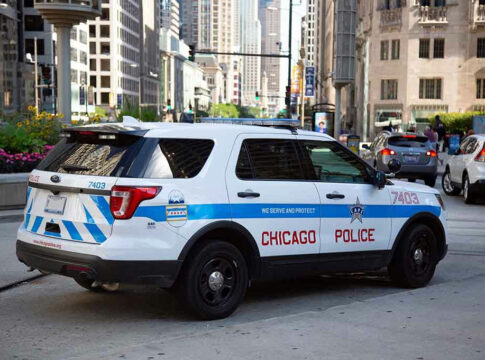President Trump’s recent meme post threatens to escalate tensions between federal authorities and Chicago, sparking debates over immigration enforcement and authoritarianism.
The Meme and Its Controversy
On September 6, 2025, President Trump posted a provocative meme on Truth Social portraying Chicago as a war zone, a scene reminiscent of the iconic film “Apocalypse Now.” The meme included the phrase “I Love the Smell of Deportations in the morning” and suggested that “Chicago will learn why it’s called the Department of WAR!” This move sparked immediate controversy and raised concerns about whether the administration was considering military-style immigration enforcement in Chicago.
In response to the backlash, Tom Homan, Trump’s border czar, appeared on CNN to address the controversy. He explained that the meme’s war-like imagery was directed at criminal cartels and illegal aliens, not the residents of Chicago. Homan insisted the administration’s focus remained on tackling crime and illegal immigration, a stance consistent with Trump’s long-standing criticism of sanctuary cities like Chicago.
Background and Political Fallout
The Trump administration has a history of using bold rhetoric to highlight issues of crime and immigration in cities led by Democrats. Chicago, with its sanctuary city status and high crime rates, often finds itself in Trump’s crosshairs. This latest meme is part of a broader strategy to draw attention to federal immigration enforcement challenges, particularly in urban centers opposing Trump’s policies.
Illinois officials, including the governor, reacted strongly, accusing Trump of authoritarianism. The governor labeled Trump a “wannabe dictator” and criticized the federal government’s approach as an overreach into local governance. This confrontation underscores the ongoing tension between federal authorities and sanctuary cities, a recurring theme in Trump’s political narrative.
Implications and Future Concerns
The meme’s release has heightened political tensions and fueled media scrutiny. In the short term, it has intensified debates over federal intervention in local law enforcement and immigration enforcement. Long-term implications could include increased federal-local conflict, setting a precedent for using social media provocations in policy messaging.
For Chicago residents, especially immigrant communities, the meme has amplified fears and uncertainties about potential federal actions. Local law enforcement and city officials may face increased pressure and resource strains if federal enforcement escalates. Nationally, the incident contributes to the polarization between federal and local governments, mobilizing both opposition and support among the public.
"Jake Tapper Flat Out Asks Border Czar: ‘Is President Trump Planning to Go to War in Chicago?’" – Mediaite #SmartNews https://t.co/pOdIAcZ38M
— BJ Rodrigue (@rodrigue_bj) September 8, 2025
Experts warn that rhetoric like this can undermine trust between federal and local agencies, crucial for effective law enforcement and community relations. The use of AI-generated content and memes in political communication is also a growing concern, shaping public discourse and influencing perceptions. As the situation develops, stakeholders on all sides will need to navigate these complex dynamics carefully.
Sources:
NBC News on Trump’s Chicago meme

